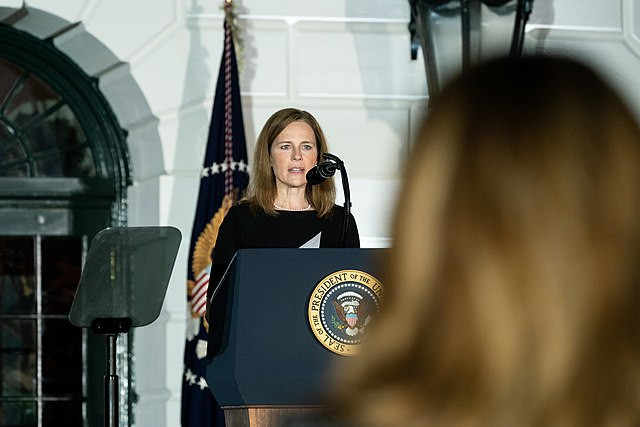The Supreme Court's conservative majority signaled openness Wednesday to permitting Oklahoma's approval of the country's first taxpayer-funded religious charter school, St. Isidore of Seville Catholic Virtual School, a move that could upend long-standing boundaries between church and state in public education.
During more than two hours of oral arguments, several justices challenged the constitutional reasoning used by the Oklahoma Supreme Court to block the proposed school. A state charter school board had approved the school's contract in June 2023, but Oklahoma Attorney General Gentner Drummond sued to stop the plan, arguing it violated both state law and the First Amendment's Establishment Clause.
Only eight justices are weighing the case, as Justice Amy Coney Barrett recused herself due to ties with a Notre Dame law professor involved in advising St. Isidore. This leaves the possibility of a 4-4 tie, which would let the Oklahoma court's ruling stand.
Chief Justice John Roberts questioned whether this case mirrored a 2021 decision in which the Court sided with a Catholic group excluded from Philadelphia's foster care system due to its religious opposition to same-sex couples. "How is that different from what we have here?" Roberts asked.
Justice Brett Kavanaugh said, "You can't treat religious people, religious institutions and religious speech as second class in the United States when you have a program that's open to all-comers." He called any exclusion of St. Isidore "rank discrimination."
Conservative Justice Samuel Alito raised concerns over perceived hostility toward religion, citing Drummond's public warnings that a ruling in favor of St. Isidore might open the door to Islamic charter schools. Alito said such remarks reflected "hostility toward particular religions."
Justice Neil Gorsuch warned of unintended consequences, stating, "I can imagine some states might respond to a decision in your favor by imposing more requirements on charter schools." He directed the comment to Alliance Defending Freedom attorney Jim Campbell, representing the Oklahoma board that approved St. Isidore.
The school is backed by the Archdiocese of Oklahoma City and the Diocese of Tulsa and plans to offer an online curriculum infused with Catholic doctrine. Lawyers for St. Isidore, supported by the Trump administration and conservative legal groups, argue the case is a test of the Free Exercise Clause and cite three recent high court rulings that limited government exclusion of religious organizations from public funding programs.
Chief Justice Roberts and other conservatives appeared to view charter schools as private actors eligible for public funding, rather than government-controlled entities subject to First Amendment constraints on religious activity.
However, liberal justices expressed alarm over the implications. Justice Sonia Sotomayor said, "There is no Establishment Clause. We are saying the Free Exercise Clause trumps the Establishment Clause." She and Justice Elena Kagan questioned whether such a decision would permit religious schools to bypass academic standards, including teaching creationism over evolution or using non-English instruction.
The case could have sweeping national consequences. Currently, all 46 states with public charter school systems prohibit religious entities from participating. A ruling for St. Isidore could force states to either revise their laws or face litigation, potentially upending funding frameworks and oversight standards.
In court filings, Drummond warned that allowing religious schools into charter programs could create "special status" for them, potentially exempting them from regulations that apply to secular schools. The National Alliance for Public Charter Schools echoed this concern, cautioning in a brief that states might cut funding to all charter schools if they're deemed private institutions ineligible for public funds.
A federal grant program that supports charter school growth also prohibits funds from going to sectarian institutions, further complicating the potential outcome.
The decision is expected by the end of the Court's term in June.






